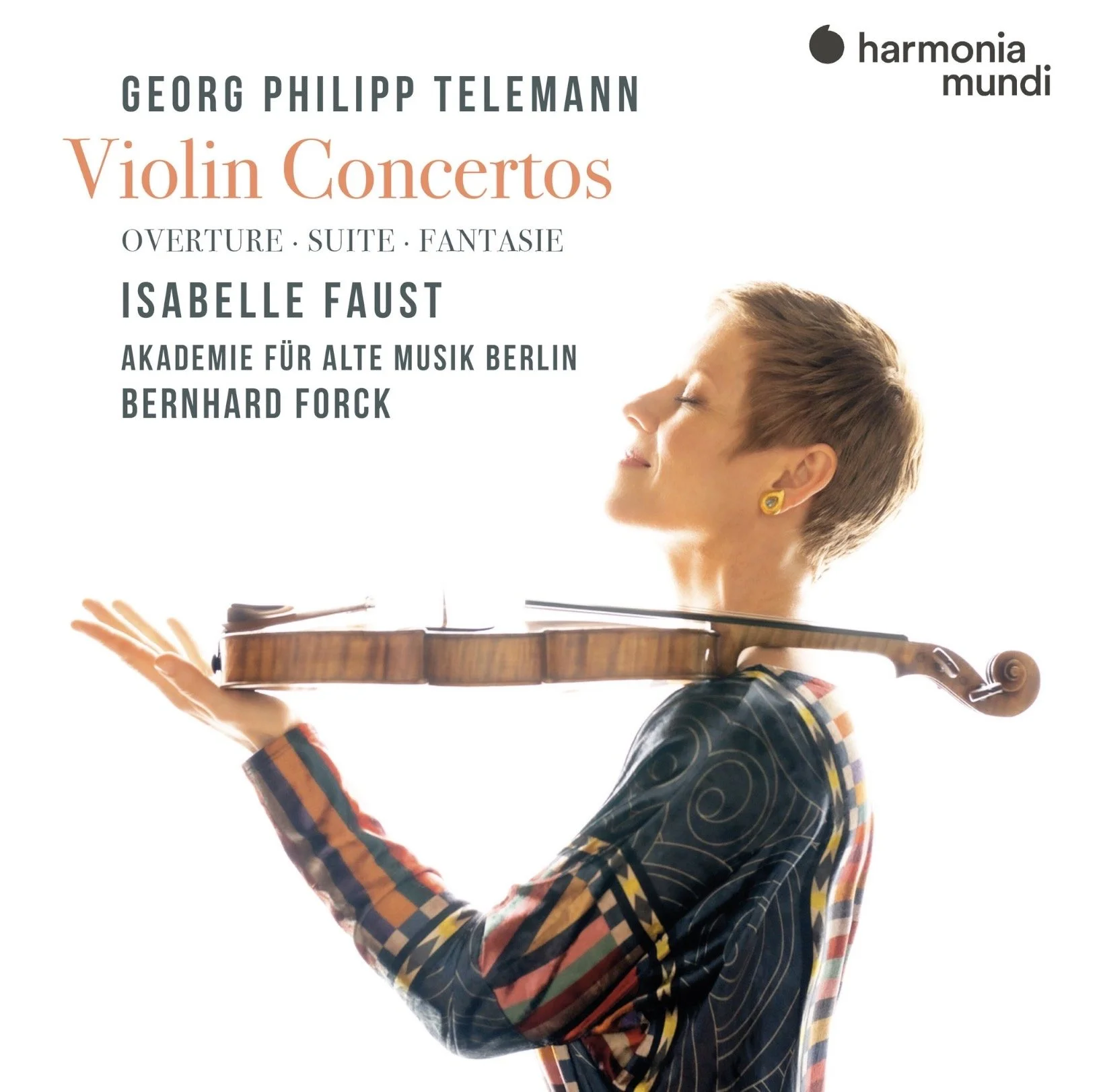Vivaldi - The Four Nations
Matthias Maute is not shy about mixing historical music alongside the modern. His Chaconne album and the recording of Bach’s Brandenburg Concertos alongside arranged pieces by Shostakovich are apt examples. This album however raised an eyebrow as I attempted to make sense of what it was. The concept is that Vivaldi, late in his career, with a desire to build upon the popularity of his Four Seasons, composed a set called The Four Nations and Il Gran Mogul, a concerto discovered only in 2010, is an example of one of these four.
Maute, also a composer, has set to “reconstruct” these three remaining concertos himself. How, I don’t know, that we can call these reconstructions. I find it questionable that these concertos would have been written for flute or recorder solos (and not the violin), but let’s be honest: the majority of music on this album isn’t by Vivaldi. It’s inspired by Vivaldi.
The playing from Ensemble Caprice is better than solid; it’s full of energy, bursting with virtuosic technique. It speaks to Maute’s gifts not only as a soloist, but as a composer, especially so in a given, historic style.
It’s not difficult to hear the references to Vivaldi’s own compositions. I remember as an undergrad, I took it upon myself to write two concertos, one a double concerto for flute and violin in baroque style. I was wholly inspired by the likes of Vivaldi. Yet I’m feeling a little uncomfortable with this whole concept, of presenting Vivaldi’s lost concertos when no original material seems to exist.
Maute anchors the regional flavor with additional pieces between each concerto. The album’s website provides this description about the album:
Ensemble Caprice presents a both imaginative yet scholarly project: the reconstruction of Antonio Vivaldi’s lost ‘national’ concertos—La Francia, L’Inghilterra, La Spagna, and Il Gran Mogol. Listed in an 18th-century catalogue (1759), three of these evocative concertos had vanished, except Il Gran Mogol, rediscovered in 2010. Drawing on his deep knowledge of Baroque language, Maute recreates these works as Vivaldi himself might have composed them. Each concerto is preceded by a historically inspired prelude, reflecting the character of each nation. A modern addition rounds out the program: La primavera, a solo recorder fantasy inspired by Vivaldi’s iconic Spring.
Let’s appraise where we are now in 2025. With music in libraries that’s yet to be performed, we’re turning to writing contemporary works and attempting to pass these off as belonging to long-dead composers? Not sure who is to blame, but my metadata for this album reads that these are Vivaldi concertos, reconstructed by Maute. Let’s be clear, these are not Vivaldi’s works.
The ultimate test might be to ask whether the pieces, those newly composed, offer enough of an aural delight to qualify as worthy to be recorded and auditioned in our homes? As mentioned, they are well-played. There’s enough material stolen from Vivaldi’s own surviving works for us to believe the could be by Vivaldi, but nearly in every movement, I wasn’t wholly convinced (and it’s hard when you know the truth).
But yes, they both well played and well-written enough to warrant a listen. But that’s the question: is that enough?
I am not against musicians today writing in baroque idioms. I just feel that selling it as something it’s not is a bit dodgy. If can admit that trying to emulate the Red Priest is an interesting pursuit, then this album may well appeal to you. Maute ends with a riff off Spring for solo recorder, showcasing, if it’s not already apparent, his supreme facility with challenging music.
The recorded sound is good with a proper amount of reverb to my taste. My rating of this album is firmly a reflection of the performances. But no, I'm not a fan of this concept and putting Vivaldi's name on the cover of the album.






